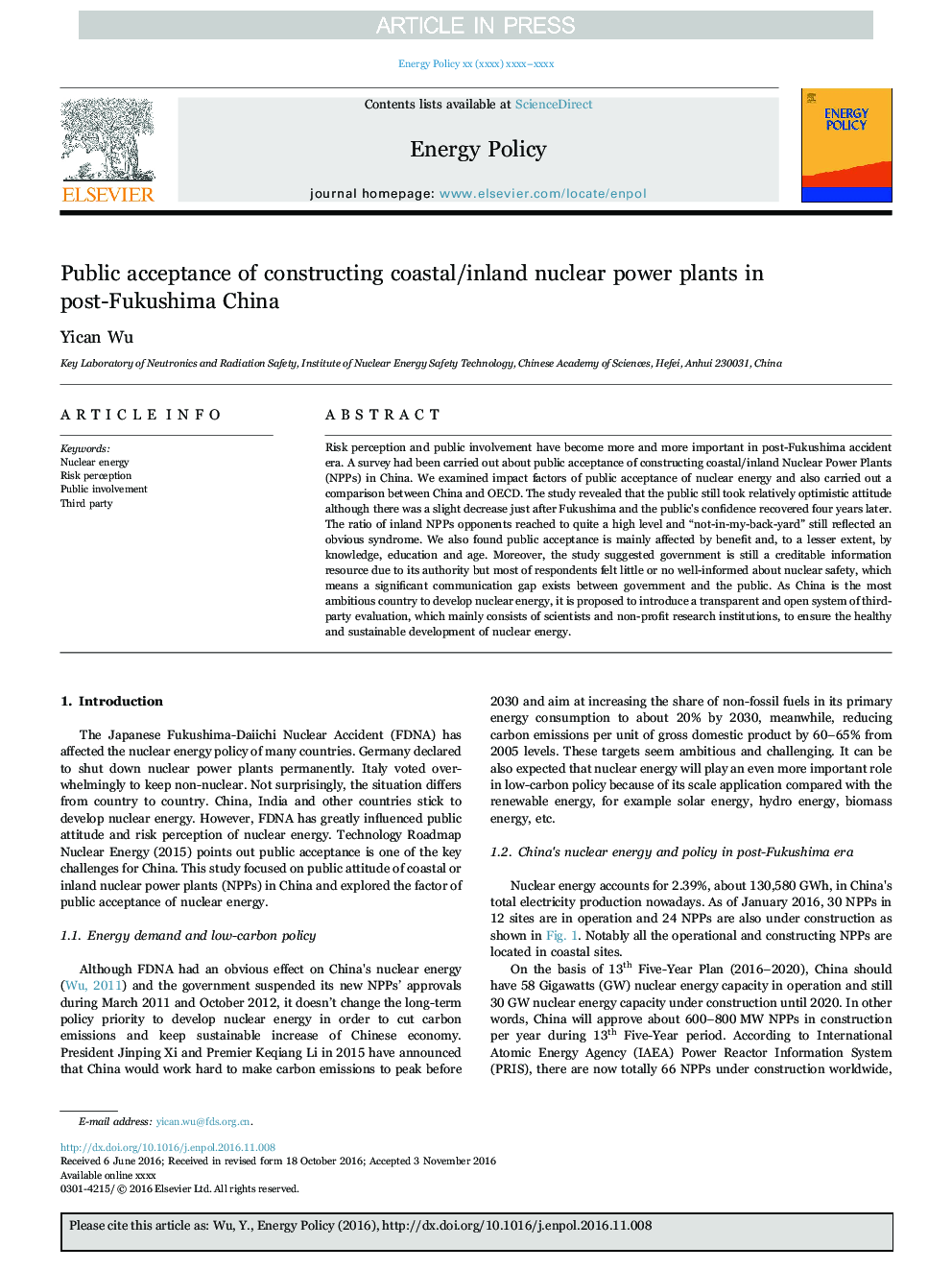| Article ID | Journal | Published Year | Pages | File Type |
|---|---|---|---|---|
| 5105981 | Energy Policy | 2017 | 8 Pages |
Abstract
Risk perception and public involvement have become more and more important in post-Fukushima accident era. A survey had been carried out about public acceptance of constructing coastal/inland Nuclear Power Plants (NPPs) in China. We examined impact factors of public acceptance of nuclear energy and also carried out a comparison between China and OECD. The study revealed that the public still took relatively optimistic attitude although there was a slight decrease just after Fukushima and the public's confidence recovered four years later. The ratio of inland NPPs opponents reached to quite a high level and “not-in-my-back-yard” still reflected an obvious syndrome. We also found public acceptance is mainly affected by benefit and, to a lesser extent, by knowledge, education and age. Moreover, the study suggested government is still a creditable information resource due to its authority but most of respondents felt little or no well-informed about nuclear safety, which means a significant communication gap exists between government and the public. As China is the most ambitious country to develop nuclear energy, it is proposed to introduce a transparent and open system of third-party evaluation, which mainly consists of scientists and non-profit research institutions, to ensure the healthy and sustainable development of nuclear energy.
Related Topics
Physical Sciences and Engineering
Energy
Energy Engineering and Power Technology
Authors
Yican Wu,
